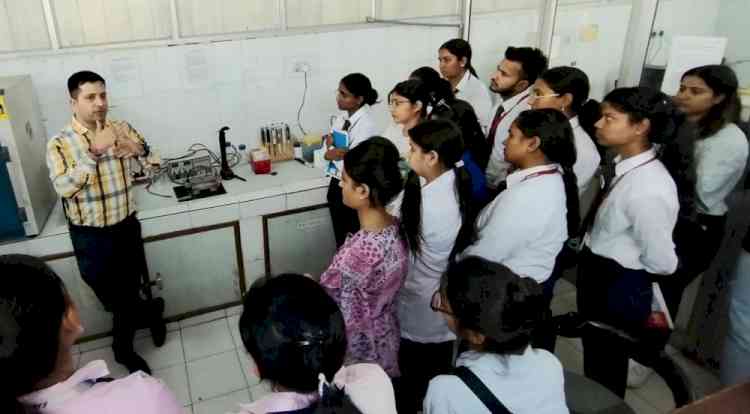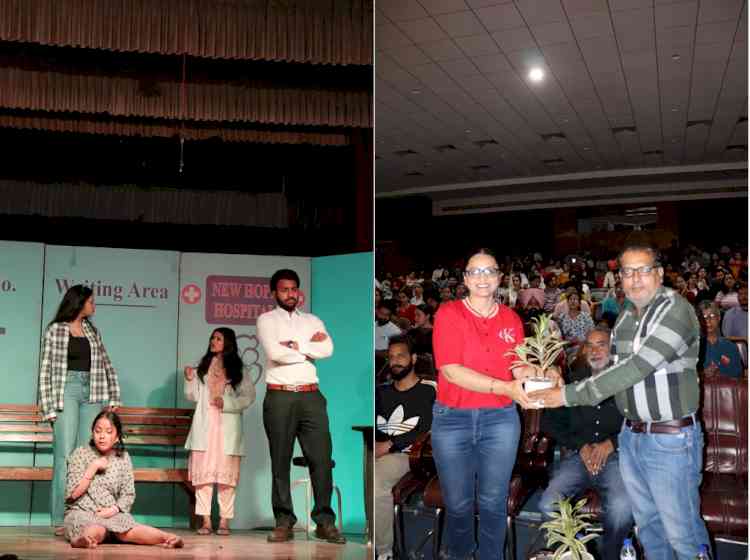Special lecture on “Re-Learning Sun Tzu’s Art of War” by Major General (Retd.) Amarjit Singh

Chandigarh, November 20, 2019: A Special Lecture on the theme “Re-Learning Sun Tzu’s Art of War” by Major General (Retd.) Amarjit Singh, Director of the Gyan Chakra Think Tank, at the Department of Defence and National Security Studies, Panjab University, Chandigarh here today.
The General started his lecture by explaining how Military action is presented by Sun Tzu in an implicitly Taoist frame of reference. Taoism (or Daoism): a Chinese philosophy based on the writings of Lao-tzu, advocating humility and religious piety. It is a philosophical, ethical, and religious tradition of Chinese origin that emphasizes living in harmony with the Tao. The term Tao means "way", "path" or "principle", and can also be found in Chinese philosophies and religions other than Taoism. In Taoism, however, Tao denotes something that is both the source and the driving force behind everything that exists.
Gen Amarjit explained how in the Art of War, it is suggested that war should be avoided when possible. The greatest victory lies in defeating the enemy even before the war has begun. If war begins the best way to peace is to achieve a swift victory. He also spoke about the 5 fundamental factors and the seven elements that determine the outcome of military engagements. Habitual deviation from these calculations will ensure failure via improper action. The text stresses that war is a very grave matter for the state and must not be commenced without due consideration. He also explained how to understand the economy of warfare and how success requires winning decisive engagements quickly. He emphasised that successful military campaigns require limiting the cost of competition and conflict.
He also shared that, in the practical art of war, the best thing of all is to take the enemy's country whole and intact; to shatter and destroy it is not so good. So, it is better to recapture an army entire than to destroy it, to capture a regiment, a detachment or a company entire than to destroy them. Hence to fight and conquer in all your battles is not supreme excellence; supreme excellence consists in breaking the enemy's resistance without fighting. Thus the highest form of generalship is to balk the enemy's plans; the next best is to prevent the junction of the enemy's forces; the next in order is to attack the enemy's army in the field; and the worst policy of all is to besiege walled cities. The rule is, not to besiege walled cities if it can possibly be avoided. The preparation of mantles, movable shelters, and various implements of war will take up three whole months; and the piling up of mounds over against the walls will take three months more.
He also spoke about the importance of defending existing positions until a commander is capable of advancing from those positions in safety. He emphasised that the commanders must realise the importance of recognizing strategic opportunities and not to create opportunities for the enemy.
He discussed the various other issues including the use of creativity and timing in building an army's momentum; how an army's opportunities come from the openings in the environment caused by the relative weakness of the enemy and how to respond to changes in the fluid battlefield over a given area etc.
The lecture was attended by members of various faculty members, serving military officers attending the M.Phil contact programme in the department, research scholars and students. The lecture was followed by a questions and answers session with the audience.

 cityairnews
cityairnews 

















